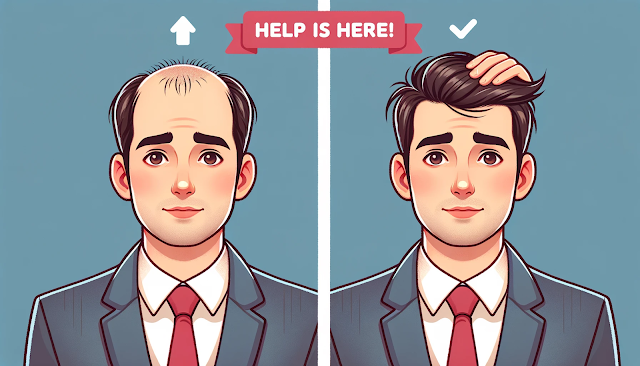Humanity stands at a crossroads where the rapid rise of cryptocurrency and advancements in artificial intelligence (AI) could redefine the way we live, work, and interact with the world. While these technologies hold immense potential for progress and innovation, they also harbor risks that could erode the foundations of human happiness and fulfillment. Let’s explore how these developments might lead to a dystopian future where life as we know it changes irrevocably.
1. The Crypto Trap: The Allure of Easy Money
Cryptocurrencies, particularly meme coins, have created a new paradigm in finance. While they offer decentralized control and financial freedom, they also come with unintended consequences:
- Scams and Exploitation: Meme coins and low-value cryptocurrencies are often exploited by scammers who manipulate markets, promising quick riches to unsuspecting investors. This undermines trust and leaves many financially devastated.
- The Decline of Traditional Work: The allure of quick profits in crypto trading is causing a shift away from traditional jobs. Why work as a plumber, carpenter, or mechanic when crypto trading or speculating on meme coins promises higher returns with less effort? As more people abandon skilled trades, societies risk a collapse of essential services that require physical labor and craftsmanship.
- Economic Instability: The volatility of cryptocurrencies creates unpredictable financial landscapes. While some thrive, many others lose their savings in speculative bubbles, leading to widespread financial instability.
2. The Rise of AI: Automation and Human Redundancy
AI advancements promise to revolutionize industries, but they also carry significant risks to human livelihoods and happiness:
- Job Displacement: As AI systems become more capable, they are replacing humans in various roles — from administrative tasks to creative jobs. Over time, even roles requiring manual labor could be automated, further discouraging people from pursuing traditional work.
- AI Dependency: With AI handling decision-making, creativity, and problem-solving, humans might lose their sense of purpose and fulfillment. Over-reliance on AI could lead to a society where people no longer strive for self-improvement or innovation.
- Virtual Lives: Advanced AI and VR (virtual reality) technologies could create hyper-realistic virtual worlds where people escape their mundane realities. In these worlds, individuals could earn crypto, interact socially, and even “live” — but at the cost of abandoning real-world connections and experiences.
3. The Shift to Virtual Lives
As AI and crypto technologies converge, a future where humans retreat into virtual environments becomes increasingly plausible:
- Crypto-Powered Economies in VR: Virtual reality spaces could become new economic hubs where people trade, socialize, and even “live.” Crypto would be the primary currency in these digital worlds, eliminating the need for physical jobs and interactions.
- Isolation and Loneliness: While virtual worlds offer endless possibilities, they lack the authenticity of real-world experiences. Over time, this could lead to widespread mental health issues as people become isolated from tangible human connections.
- Health Implications: With fewer people engaging in physical labor or outdoor activities, sedentary lifestyles could lead to health crises. Advanced medical technology might mitigate some of these issues, but pills or AI-driven health solutions cannot replace the benefits of an active, balanced life.
4. The Role of AI in Sustenance: Food Pills and Automation
In a future dominated by AI, even basic human needs like food might be replaced by technology:
- Food Pills: Advanced AI and biotechnology could develop nutritional pills that replace traditional meals. While efficient, this shift could strip away the cultural and social aspects of food, which play a significant role in human happiness and community.
- Loss of Tradition: Culinary traditions, farming practices, and food-related industries might become obsolete. This loss would erode a vital aspect of human culture and identity.
5. The Consequences: A Lazy and Detached Humanity
If current trends continue, the future could see a humanity that is:
- Lazy and Unproductive: With crypto offering easy money and AI handling most tasks, people might lose the drive to work, create, and contribute to society.
- Detached from Reality: Immersed in virtual worlds, humans might prioritize digital experiences over real-world relationships and achievements.
- Vulnerable to Exploitation: Centralized control of AI and crypto systems could lead to monopolies, leaving individuals powerless and dependent on a few corporations or entities.
6. How to Prevent This Future
While the risks are real, humanity has the power to steer these technologies toward a more balanced and fulfilling future:
- Education and Awareness: Teach people about the risks of scams and the importance of financial literacy in the crypto space.
- Ethical AI Development: Ensure AI systems are designed with human well-being as a priority, focusing on augmenting human capabilities rather than replacing them.
- Promoting Real-World Value: Encourage innovation and work that contributes to society’s tangible needs, such as renewable energy, sustainable agriculture, and healthcare.
- Regulating Virtual Economies: Establish guidelines to prevent exploitation and ensure that virtual worlds complement rather than replace real-life experiences.
Conclusion
The rise of cryptocurrency and AI presents an exciting but precarious future. While these technologies offer immense potential, they also threaten to disrupt traditional human lifestyles and happiness. By acknowledging these risks and taking proactive steps, humanity can harness these innovations to create a future that balances progress with the core values of connection, purpose, and fulfillment. Without intervention, however, the world may slide into a reality where humans become isolated, unfulfilled, and overly dependent on technology.



















